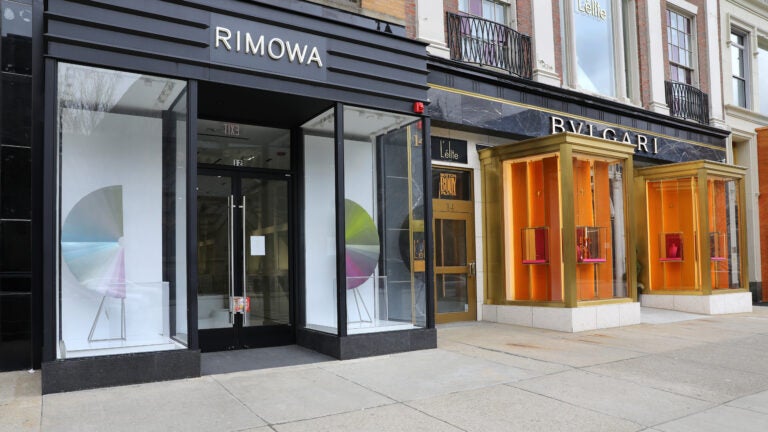Business
At a City Council hearing, business leaders and police said shoplifting remains a problem in key retail areas.

Shoplifting remains a persistent problem in Boston’s busiest retail districts, business leaders and police told the City Council during a hearing this week — but they say new initiatives are beginning to make a difference, even as more work remains.
The hearing, sponsored by Councilor Ed Flynn, comes as retailers across the city continue to sound the alarm about rising theft.
“In my opinion, we have to have zero tolerance for stealing,” Flynn said at the hearing. “It hurts small businesses. It hurts the residents. It hurts the consumer. It hurts the City of Boston.”
Flynn said retail theft threatens the economic viability of local businesses, neighborhood safety, and residents’ quality of life.
“When theft becomes routine and unchecked, neighborhoods suffer,” said Paul McLaughlin, the Boston Police Department superintendent and chief of Bureau of Investigative Services, at the hearing. “Local retailers shut their doors, jobs disappear, and residents begin to feel less secure in the places that they live and shop.”
To combat that, McLaughlin said the Boston Police Department launched the “Safe Shopping Initiative” in March 2024 with the Suffolk County District Attorney’s Office. The program uses shoplifting data and reports from businesses to identify trends, coordinate prevention strategies, and help reduce store closures.
Police said part of the recent rise in theft reports stems from better data sharing between businesses and law enforcement.
That data has revealed that many of the thefts are happening in major retail centers in the Back Bay, South End, Downtown Crossing, and South Bay Center in Dorchester.
“Within those people stealing for need, there’s people that are stealing for greed, and they are doing this for economic gain,” McLaughlin said, referring to those reselling stolen goods online or on the black market.
At a July press conference, Boston Police Commissioner Michael Cox said repeat offenders — such as the suspect recently arrested at Lululemon — make up 20% of people arrested for shoplifting.
At the hearing, McLaughlin said shoplifting in Boston was up 15% as of July compared to the same time last year.
Retail theft overall jumped 55% in the first half of 2024 compared to the same period in 2019, according to the Council for Criminal Justice.
Ryan Kearney, general counsel for the Retailers Association of Massachusetts, said shoplifting, cargo theft, and internal theft cost the state’s retailers an estimated $1.5 to $2 billion each year.
Boston police said more reporting has led to more arrests. Shoplifting-related arrests rose 60% in 2024 compared to 2023 — 72% above the five-year average — and were up 90% from January to August this year compared to the same period last year.
However, despite the rise in numbers, Michael Nichols, president of the Downtown Boston Alliance, said, “It is a dramatically better business climate downtown than it was at this time about a year ago.”
Nichols said that Downtown Crossing is seeing its lowest level of post-pandemic vacancy, from about 110 storefronts three years ago to closer to 65 today, mentioning that Uniqlo is moving into one of the longest and high-profile vacant spots.
“Today, retailers are having more confidence in being in our downtown than they did before,” he said.
But, residents from the South End gave a bleak outlook for local retailers who are struggling to survive as they continue to deal with the impact of ongoing public safety problems, including substance use and homelessness, plaguing the Massachusetts Avenue and Melnea Cass Boulevard area.
Randi Lanthrop, a local community leader who runs a developer consulting practice, said retailers like CVS and Walgreens are closing near the troubled intersection.
“Why?” Lanthrop questioned at the hearing. “Because customers and employees were getting threatened by needles. People were coming during the day and saying, ‘Give me your purse, give me your wallet, or I’m going to stick you with a needle and it has fentanyl.”
Lanthrop added, “It’s happening more than people realize.”
South End resident Brian McCarter testified that residents have nowhere to shop now because so many places have shuttered.
Plus, the stolen items, he said, are traded for drugs on the sidewalks.
“It helped fuel the drug crisis around here,” McCarter said. “It’s not shoplifting in a vacuum. It’s often fueling drug addiction.”
Sign up for the Today newsletter
Get everything you need to know to start your day, delivered right to your inbox every morning.




